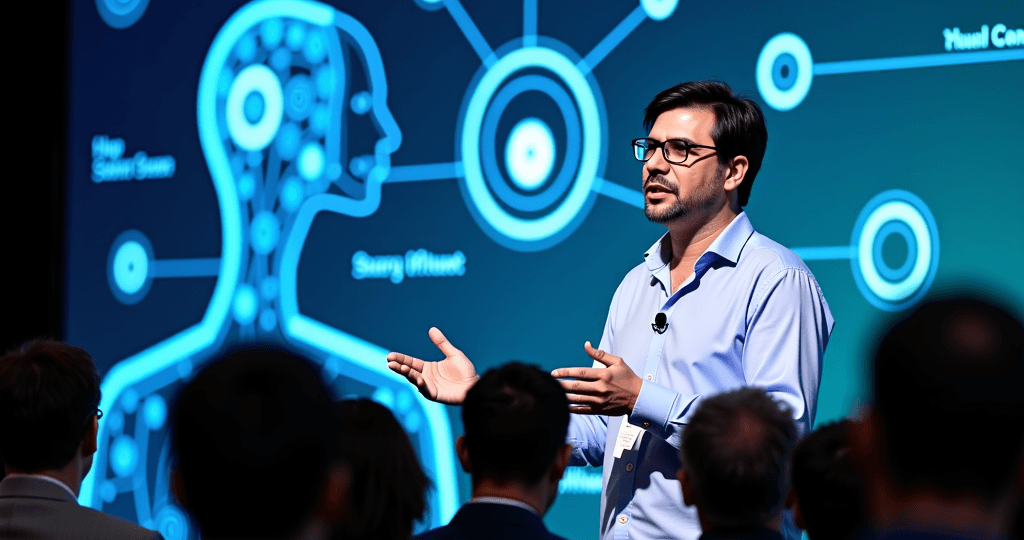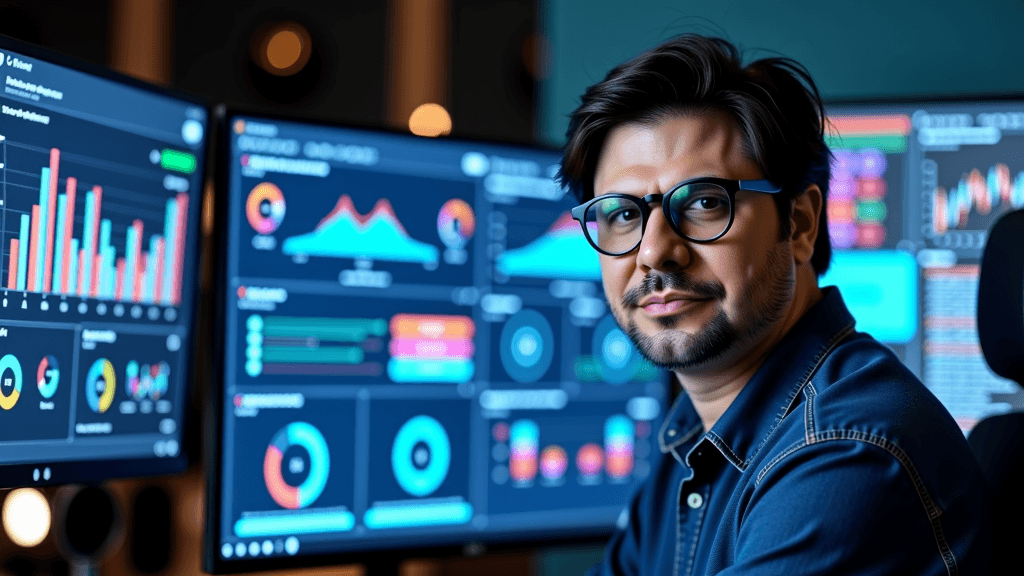The AI Revolution at Work: Challenges and Opportunities for 2025
February 16, 2025 | by Matos AI

Artificial Intelligence is Redefining the Future of Work
We are living in a unique moment in human history. Artificial intelligence (AI) is emerging as an unprecedented transformative force, completely redefining the landscape of work and innovation. As an entrepreneur and technology and startup expert, I have been closely following this revolution and its implications for the future of business and society.
I recently had the opportunity to analyze several studies and reports on the impact of AI on the job market. The data is impressive and reveals both challenges and enormous opportunities for professionals and companies.
The Current Landscape of AI at Work
According to the Work Relationship Index, a global study conducted by HP, only 281% of knowledge workers reported having a healthy relationship with work. This is alarming and indicates an urgent need to rethink our work practices.
Join my WhatsApp groups! Daily updates with the most relevant news in the AI world and a vibrant community!
- AI for Business: focused on business and strategy.
- AI Builders: with a more technical and hands-on approach.
On the other hand, the same survey reveals that 791% of knowledge workers in Brazil believe that personalization at work would improve their well-being. This is a clear opportunity for the application of AI: to create more personalized and efficient work experiences.
AI: Ally or Threat?
An interesting perspective comes from Cíntia Scovine Barcelos, Bradesco’s Chief Technology Officer. She says AI is an ally, not a threat, to jobs in the financial sector. In fact, she says, there are more jobs available than there are qualified professionals to fill them.
This reinforces something I’ve always advocated: the key to thriving in the AI era is constant updating and developing new skills. In my talks and mentoring sessions, I always emphasize the importance of continuous learning and adaptability.
The Challenges of Overreliance on AI
However, it’s not all sunshine and rainbows. A recent study by Microsoft and Carnegie Mellon University raises concerns about the overreliance on AI tools in the workplace. Constant use of these technologies can lead to atrophy of critical thinking and problem-solving skills.
This underscores the importance of using AI as a tool to support, rather than replace, human reasoning. In my experience working with startups and innovation, I’ve found that the most creative and disruptive solutions often come from a combination of human and artificial intelligence.
The Impact of AI on Different Sectors
AI transformation isn’t limited to one industry. In wealth management, for example, AI is enabling small teams to perform tasks that were previously performed by large teams. This presents an incredible opportunity for startups and fintechs, which can now compete on equal terms with large financial institutions.
In the education sector, AI offers possibilities for personalized learning, but it also brings challenges, especially for children and adolescents. It is crucial to find a balance between the use of technology and the development of social and critical skills.
The Future of Work with AI: My Vision
Based on my experience in the startup and innovation ecosystem, I see the future of AI work as a human-machine collaboration scenario. The companies that will thrive will be those that can integrate AI capabilities with the unique skills of humans.
In my mentoring and consulting, I have helped companies implement AI strategies that increase productivity without sacrificing creativity and critical thinking. The secret lies in using AI to automate repetitive tasks, freeing up time for professionals to focus on high-value activities.
Preparing for the Future
To prepare for this future, I recommend:
- Invest in continuous learning, especially in areas that complement AI capabilities.
- Develop socio-emotional skills, such as empathy and leadership, which are difficult for machines to replicate.
- Cultivate creativity and critical thinking, characteristics that differentiate us from machines.
- Seek to understand how AI works and how it can be applied in your field of activity.
In my lectures and in the book “10 Thousand Startups”, I extensively address these strategies and how to implement them in practice.
Conclusion
The AI revolution in the workplace is an inescapable reality. It brings significant challenges, but also unprecedented opportunities for innovation and growth. The key is to embrace this change consciously and strategically.
As an entrepreneur and mentor, I am committed to helping professionals and companies navigate this transformation. If you are looking for guidance on how to integrate AI into your business or how to prepare for the future of work, I would be happy to share my experience in a mentoring or consulting session.
Remember: the future belongs to those who prepare for it today. Let’s build a smarter, more efficient and more humane future of work together!
✨Did you like it? You can sign up to receive 10K Digital's newsletters in your email, curated by me, with the best content about AI and business.
➡️ Join the 10K Community here
RELATED POSTS
View all



